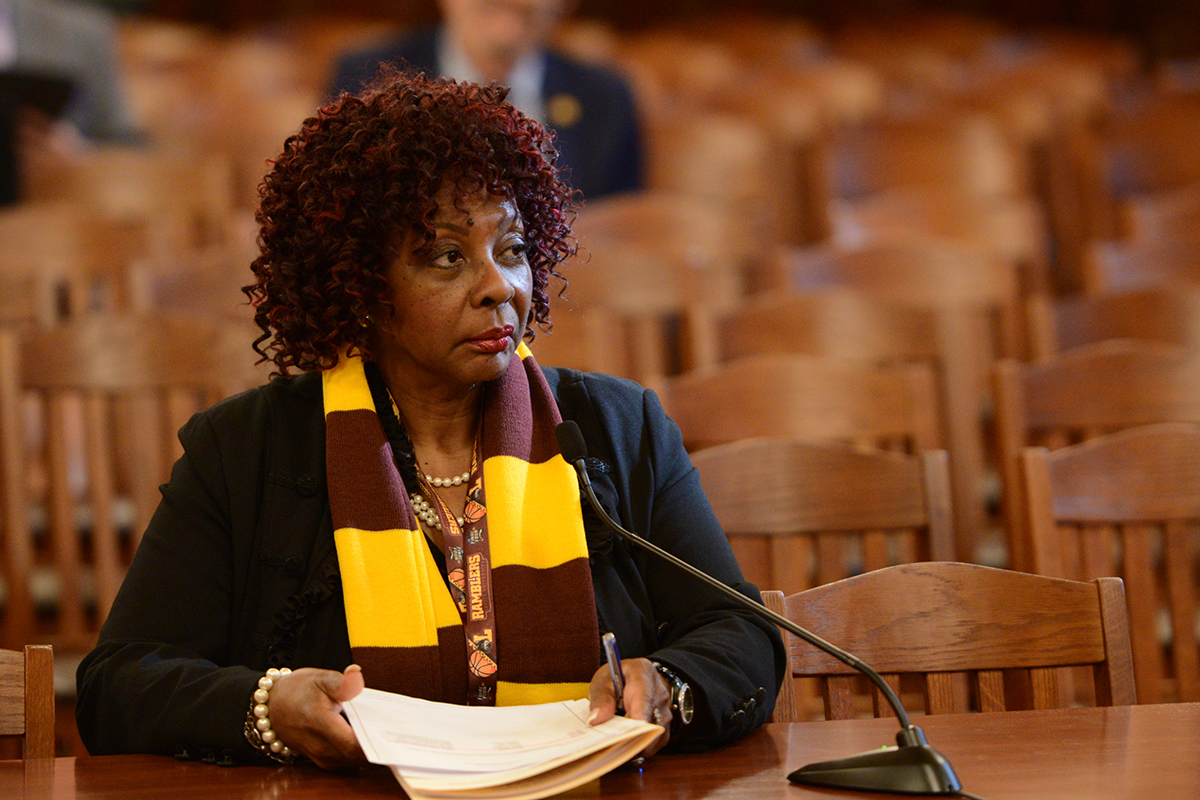- Details
- Category: News
 SPRINGFIELD – State Senator Mattie Hunter (D-Chicago) championed a plan which was signed into law this week to prevent children with serious mental health illness from being separated from their family.
SPRINGFIELD – State Senator Mattie Hunter (D-Chicago) championed a plan which was signed into law this week to prevent children with serious mental health illness from being separated from their family.
For years, the Department of Child and Family Services (DCFS) has required parents of children with mental health conditions or behavioral disorders that require residential treatment to give up custody of their children in order to get the residential placements the children needed.
“In these situations, the goal is always to get children out of the hospital and into community and family settings,” Hunter said. “This new law works toward keeping families together and ultimately providing therapeutic homes and placements for children.”
Senate Bill 2655 will provide additional funding for residential treatment for children with serious mental illnesses and reduce the likelihood of lockout or custody relinquishment that leads to a psychiatric hospital stay beyond medical necessity.
- Details
- Category: News

Hunter (D-Chicago) worked to expand influenza research and prevention after a rapid increase in the number of people going to see their doctors or health care providers with flu related symptoms this year.
According to reports, there have been a total of 114 pediatric deaths related to the flu, with 30 deaths so far this year. Doctors' offices and emergency rooms experienced visits at levels almost as high as during the 2009 swine flu epidemic.
“Influenza is a dangerous illness that can have serious consequences,” Hunter said. “I am glad that we now have additional steps in place to protect children and families by providing them the information they need to live healthy lives.”
Senate Bill 2654 requires the Illinois Department of Health to develop information materials about influenza and flu vaccines for school districts. Additionally, school boards are now required to provide that information to parents when notifying them of other health related matters.
The governor signed Senate Bill 2654 this week. It takes effect immediately.
- Details
- Category: News

Hunter hosted her annual health fair with State Representatives Sonya Harper (D-Chicago) and Juliana Stratton (D-Chicago), Institute for Positive Living, Human Resource Development Institute, ComEd and more. Fair highlights included free physicals, health screenings and immunizations.
“I look forward to hosting this event for our community every year,” Hunter said. “We understand how difficult it can be to afford regular doctor visits or receive immunizations every year, and this is a way to provide necessary health services and give back to the community.”
The event also served as an opportunity to honor those who lost their lives to violence and breast cancer, with commemorative balloon releases. Hunter released pink balloons with Carolyn Adams’ family, the namesake of the Carolyn Adams Ticket for the Cure, in honor of those who lost loved ones to breast cancer. Gatherers released red balloons alongside the Hunter family while calling out the names of victims of violence.
More Articles …
Page 72 of 125


